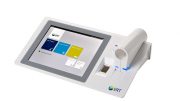The European Commission recently unveiled two long-awaited proposals on digital services and digital markets. While we don’t yet know how—or when—these measures will be enacted, we do know that they are needed if the EU is going to sustain the forward progress on digital engagement begun during the pandemic.
That is particularly true in the EU’s pharma and biopharma industry, where many companies shifted engagement from paper to screens in the blink of an eye despite a lack of regulatory clarity. The data indicates that digital engagement has been highly effective and key to more relevant HCP interactions, and an updating of the EU’s laws on online trade and platforms could open the way for more progress.
In our predictions for the coming year, we see improved digital adoption as critical to competitive positioning, interactions with healthcare professionals (HCPs), and even to drug development and trials.
Prediction: Digital-forward companies will outperform their peers
Before COVID-19, some companies were moving to expand digital engagement. When the pandemic hit, all needed to do so. Virtual meetings, email, and digital content became the main ways to communicate with HCPs, and they clearly appreciated the effort. A global survey done in the early months of the pandemic revealed that nine out of 10 prescribers expected pharma to use hybrid and virtual channels.
That result shouldn’t be surprising, given the effectiveness of digital communications. Virtual sales calls lasted an average of 18 minutes across the EU and rep-sent emails had an enviable 42% open rate. Some countries had even better results. In France, the length of virtual calls was an average of 25 minutes, while the open rate for emails in Spain was 54%.
Despite these improvements, some companies may be tempted to return to fully face-to-face engagement and paper leave-behinds when the pandemic finally recedes. That is likely to be a mistake. Companies that remain attuned to HCP needs and continue to create tailored, digitally delivered content will increase the loyalty of their customers and outperform their competitors. As they stick with digital selling, however, these companies will need more content and more training so that their reps can use digital tools and data alongside in-person interactions, where relevant, to achieve the strongest results.
Prediction: Quality will trump quantity of HCP interactions
In a post-pandemic world, the quality of HCP interactions will supersede the quantity of touchpoints as the measure of success. High-quality content, delivered by experts, will become the most effective form of engagement.
Quality content is specifically tailored to an HCP’s therapeutic area, market and individual preferences. Physicians are pressed for time, so life sciences companies need to make the best use of the openings they are given, delivering the right information at the right time. HCPs appreciate this, and the good will created can spill over to in-person interactions.
As companies continue to navigate a world with multiple channels, field forces, and divisions, the ability to drive more relevant conversations will help create a more sustainable and cost-effective model across commercial and medical.
Prediction: A centralized data platform will be key in the shift to hybrid trials
Digital advances aren’t only happening in sales and marketing. On the clinical side, we are seeing a shift from decentralized approaches to more connected digital trials. But success will depend on having a strong data foundation in place so that patient data from visiting nurse services, mobile health applications, and wearable devices can be connected with data in a sponsor’s clinical data management systems.
At this point, there is no connection between the two, so external data must be aggregated, verified, and cleaned using costly, time-consuming, manual processes. Lack of access to clean data in real time creates potential risks to patient safety and governance.
Using centralized data management tools that ingest, aggregate, and clean data will make it easier for clinical teams to analyze and share reliable information during study conduct. This data foundation will enable a seamless flow of information across functions and stakeholders to drive better collaboration, decision making, and speed.
By Chris Moore, president, Veeva Europe





